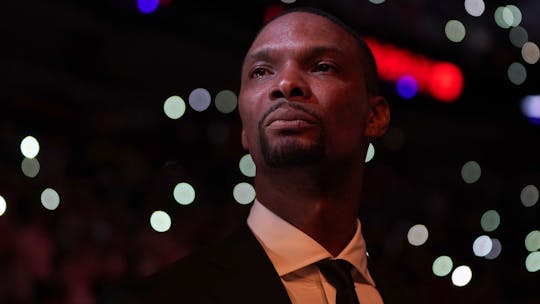Chris Bosh recently entered the Naismith Basketball Hall of Fame. When you look at Bosh’s career, his accomplishments are undoubtedly Hall of Fame worthy: two NBA championships, 11 NBA All-Star selections, and an Olympic gold medal.
Bosh accomplished a lot in the league, but many tend to forget that he was forced to retire at the age of 31—an age where most players are just hitting their prime.
As professional basketball players, we are taught to be the toughest in the room and to overcome all the challenges the game throws at us to win. We must always try to contribute to the team even during bad shooting days or sprained ankles. Showing up—even when you’re not at your best—is expected. We have to find ways to become a factor no matter what.
However, what Bosh experienced was something different. His medical condition forced him into retirement. He knew he had to leave the game, even if he didn’t want to.
In hindsight, Bosh did what was beneficial for the majority. He retired early to be there for his family. During his time with the Toronto Raptors, he was a consistent double-double threat who had to carry the team on his back.
But the pivotal moment of his career came when he moved to the Miami Heat and formed the infamous Big 3 with LeBron James and Dwyane Wade in 2010—a time where superstars joining forces was a foreign idea and something frowned upon.
Bosh needed to adjust for the team to function better as a whole. He helped the Heat pioneer and introduce many of the small-ball elements we see in the game today.
As a stretch four or small-ball five, Bosh became a vital part of the Heat with his outside shooting and defensive versatility, often forcing their opponents to make difficult matchup decisions. He was the mold for the modern-day big man and that in itself is Hall of Fame worthy.
Like many professional players, Bosh struggled with the fact that he had to leave the game abruptly.
“I felt like all the work that I put in was for nothing, but I never took that to mean that I was wasting my time. I took it to mean that: I should put in more time. That I should work even harder,” Bosh said in his speech.
“When you look back at my career, when you visit Springfield and see my plaque, it’s going to seem inevitable that I ended up here -- and that’s how I felt about my heroes growing up. I thought they were automatically destined for greatness. But as I’ve been reflecting on my career, I’ve realized the accomplishments were anything but guaranteed.”
Like he did on the court, Bosh adapted to the new situation and transitioned into a more present father, an author, and a music executive and producer.
Bosh’s Hall of Fame speech reminded all of us about how quickly one thing can be taken away from us. But he found the closure he needed and realized that being a successful basketball player was just one phase of his life.




